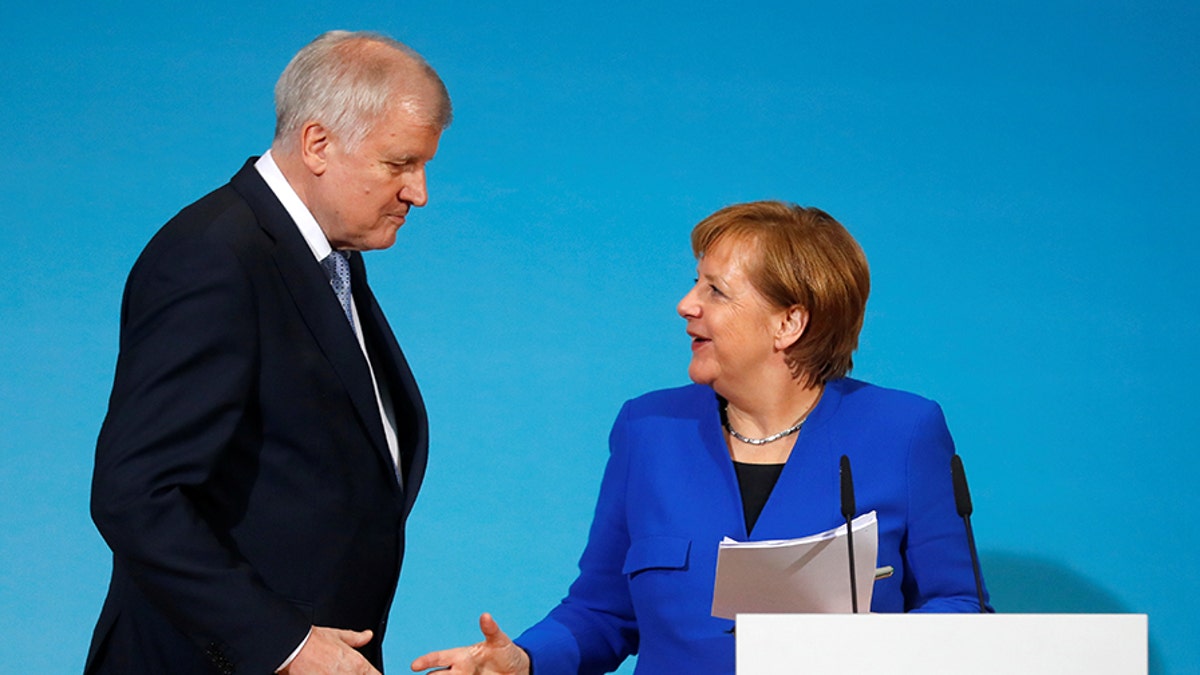
Interior Minister Horst Seehofer, seen here with Chancellor Angela Merkel, has promised a tougher line on migration. (AP)
German Chancellor Angela Merkel was undercut by her interior minister on Friday, when he said in an interview that “Islam does not belong to Germany.”
Interior Minister Horst Seehofer, whose Bavarian Christian Social Union is a right-wing coalition ally of Merkel's Christian Democrats (CDU), made the remarks in an interview with Bild, although he did add that Muslims who live in the country are part of Germany.
“Germany is shaped by Christianity. That means not working on Sundays and celebrating religious holidays such as Easter, Pentecost and Christmas," he said.
“My message is: Muslims need to live with us, not next to us or against us,” he added.
He has also taken a harder line on deportations, calling for policies that would make deportations easier.
His comments set him up for a clash with Merkel, who opened the country’s borders to mass migration from the Middle East and Africa in response to the Syrian refugee crisis in 2015. The comments also come as the populist and anti-migration “Alternative for Germany” (AfD) has been creeping up in the polls.
The CDU faces a state election this year where the AfD is expected to do well. The AfD's campaign in last year's election included the statement that "Islam is not a part of Germany."
The phrase "Islam is part of Germany" was coined by former President Christian Wulff in 2010.
Merkel responded to Seehofer's comments in a press conference by noting that there are four million Muslims in Germany.
"They can live their religion here too," she said. "These Muslims belong to Germany and in the same way their religion belongs to Germany, that is to say Islam."
The comments come after Merkel herself has shown a willingness to move to counter some of the populist and anti-Islamic rhetoric that is being increasingly well-received in the wake of the migration wave.
ANGELA MERKEL ADMITS THAT 'NO-GO' ZONES EXIST IN GERMANY
Earlier this month she admitted the existence of so-called “no-go zones” in Germany, areas said to be dogged by high-levels of crime and where outsiders, including police and other authorities, are unable to enter.
“It means for example that there cannot be any no-go areas, that there cannot be areas where no-one dares to go but there are such places,” she said. “One has to call them by name and do something about it.”
The Associated Press contributed to this report.








































